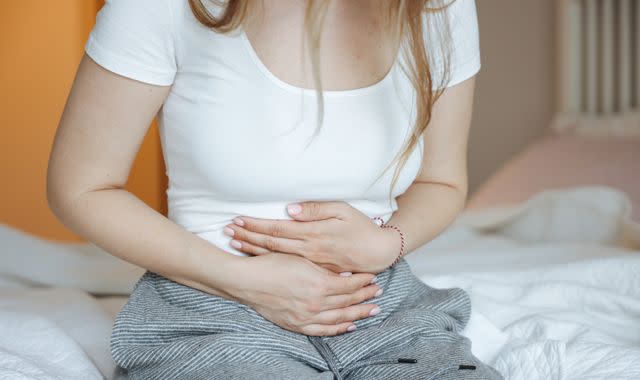Women in UK face average wait of almost nine years for endometriosis diagnosis

Women in the UK are waiting almost nine years for an endometriosis diagnosis, according to research that found many women are "dismissed, ignored and belittled".
The study by the charity Endometriosis UK found waiting times for the condition to be formally identified have significantly deteriorated since the pandemic, increasing to an average of eight years and 10 months - up 10 months since 2020.
The report, which surveyed 4,371 women, also found that almost half of respondents had visited their GP 10 or more times with symptoms before receiving a diagnosis.
Endometriosis is a condition where tissue similar to the lining of the womb grows in other places, such as the ovaries and fallopian tubes.
It impacts around one in 10 women and symptoms can vary from person to person.
"My periods are… painful to the point where I'm bedbound," said Sanchia Alasia, who was diagnosed with the disease in 2010, after 15 years of symptoms.
As a former mayor of a London borough, she has led a busy and productive life but pain and discomfort were never far away.
"I've missed so many engagements," she said.
"I remember missing my nephew's funeral. I've missed dinners, day trips. I wouldn't even count the amount of money I've lost over things that I've booked and not been able to attend.
"It can be incredibly frustrating," she added.
Emma Cox, chief executive of Endometriosis UK, said the problems with diagnoses persist because symptoms are often misunderstood.
"Day to day, without a diagnosis, some people have real issues both physical and mental health, because they'll be in severe pain," Ms Cox said.
If left undiagnosed and untreated, endometriosis can lead to worsening physical symptoms and even permanent organ damage.
The charity's research showed that, while women in England and Scotland wait an average of eight years and 10 months for a diagnosis, those in Northern Ireland wait nine years and five months, and those in Wales wait nine years and 11 months.
It also found that 52% of respondents had visited A&E at least once due to symptoms of endometriosis.
Ms Cox said: "We want this to be a real wake-up call for governments and the NHS.
"What we'd like to see is a commitment from the NHS and governments in each nation in the UK, to have a target of an average diagnosis time, by a year or less by 2030.
"We believe that's doable," she added.
Read more:
Endometriosis: My search for a cure
Women in severe pain put off GP visits because of 'gaslighting'
Diagnosis came after 'years of agony'
Minister for the Women's Health Strategy, Maria Caulfield, admitted more needs to be done to improve women's experiences of the healthcare system.
"From getting an initial diagnosis to getting the right care and treatment, we must learn from this report," she said.
"We launched our Women's Health Strategy to do just this - listen to women. Endometriosis is a priority area within our strategy, so expect to see more in this space.
"Through the strategy, we are working to turn 'dismissed, ignored and belittled' into 'listened to, understood and empowered'."


